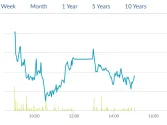
Tokyo Olympics without crowds could cost reinsurers up to $400m
These losses should not materially affect earnings as there are reserves in case of potential losses.
Japan’s decision to bar spectators from the upcoming Tokyo Olympics could cost the global reinsurance sector $300m to $400m due to ticket payouts and hospitality refunds, according to a Fitch Ratings report.
These losses should not materially affect earnings, however, as reinsurers have already set aside reserves in case of potential losses.
The total insurance cover for the Olympics is estimated to be about $2.5b, comprising $1.4b taken out by the International Olympic Committee and the Tokyo Organising Committee, $800m by broadcasters and $300m by other parties such as sports teams, sponsors, and hospitality.
Reinsurers would bear most of the losses arising from this cover given that high-severity exposures are typically heavily reinsured, the report said.
The cancellation of the Olympics would also have led to the largest ever insured losses from a single event cancellation, adding to reinsurers’ woes on earnings from the pandemic and US casualty reserve deficiencies, and following several years of high natural catastrophe losses, Fitch added.
“The pandemic has led insurers and reinsurers to rethink some of the cover they provide and how they price it. In the past, they may have considered cancellation risks for different events to be mostly uncorrelated. However, the pandemic has highlighted how mass cancellations can happen simultaneously due to a single trigger, with even mega-events, such as the Olympics, potentially at risk.”
Moreover, insurers and reinsurers have to consider correlations in order to assess the insurability of risks, as well as the possibility of enormous aggregated losses when correlated risks bundle together.
In addition, renewed insurance policies for event cancellations now exclude cover for losses due to communicable diseases, which should shield insurers and reinsurers from losses stemming from further lockdowns against pandemics.
However, event cancellation policies are typically multi-year, so it will take time for the existing risk exposures to run off, the report said.
Photo courtesy of Wikimedia Commons.



















 Advertise
Advertise







